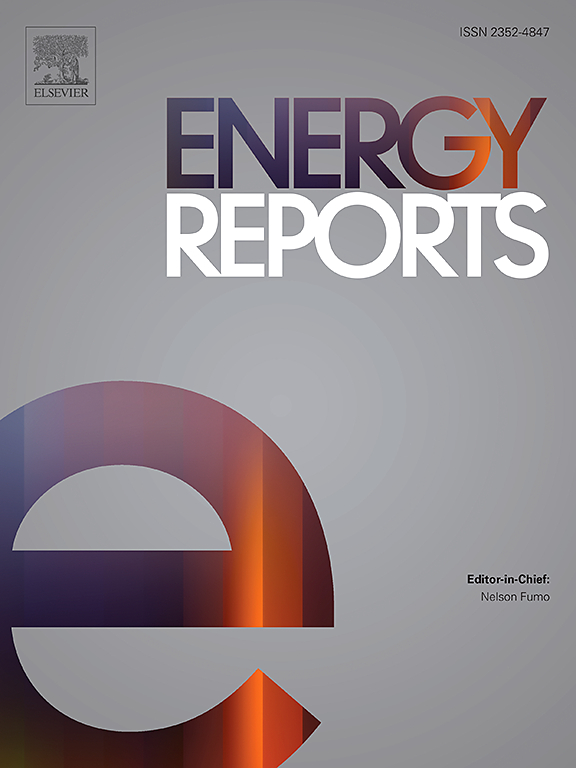Multi-agent system for optimized energy management in multi-smart buildings via deregulated market system
IF 4.7
3区 工程技术
Q2 ENERGY & FUELS
引用次数: 0
Abstract
A key focus in smart grid research, especially within emerging distribution frameworks, is the effective management of energy resources. The proposed approach employs a multi-agent system to manage energy resources in interconnected smart buildings. The goal is to enhance resilience by determining the energy available for consumption or storage from the source by generating agent, adjusting energy usage in response to grid cost by load agent, and optimizing the supply-and-demand dynamic by storing surplus power during peak hours and discharging it during off-peak hours by storage agent. A MATLAB simulation-based model was developed to analyze five different cases, resulting in the proposed scheme. During off-peak hours, grid dependence decreases by 65.5 %, by 73.49 % during mid-peak hours, and by 85.9 % during peak hours, compared to the base case. When comparing case 3 to the base scenario, the share of energy imported by buildings from the main grid during off-peak, mid-peak, and peak hours is reduced to 69.8 %, 76.51 %, and 89.39 %, respectively, following the implementation of the deregulated market system. This paper presented a genetic algorithm in case 4 to optimize consumption patterns to minimize costs and achieve a 30 % reduction in consumption during peak hours. The resulting consumption decreases peak-hour grid imports by 85.4 % and 96.1 % for building 1 and building 3, respectively, compared to the base case. The findings of this study are useful in understanding the prospects of transforming the energy landscape through proper energy management and enabling a competitive energy market structure.
基于市场化的多智能楼宇能源管理优化多智能体系统
智能电网研究的一个关键焦点,特别是在新兴的配电框架中,是能源的有效管理。该方法采用多智能体系统对互联智能建筑中的能源资源进行管理。目标是通过发电代理确定可从源头消耗或存储的能源,通过负荷代理根据电网成本调整能源使用,通过存储代理在高峰时段存储剩余电力并在非高峰时段放电来优化供需动态,从而增强弹性。建立了基于MATLAB的仿真模型,分析了五种不同的情况,从而得出了所提出的方案。与基本情况相比,在非高峰时段,电网依赖性下降了65.5% %,在中高峰时段下降了73.49 %,在高峰时段下降了85.9% %。当将案例3与基本情景进行比较时,在解除管制的市场体系实施后,建筑物在非高峰、中高峰和高峰时段从主电网进口的能源份额分别降至69.8% %、76.51 %和89.39 %。本文在案例4中提出了一种遗传算法来优化消费模式,以最小化成本,并在高峰时段实现30% %的消费减少。与基本情况相比,由此产生的消耗使1号楼和3号楼的高峰时段电网进口量分别减少了85.4 %和96.1 %。本研究的结果有助于理解通过适当的能源管理和实现竞争性能源市场结构来改变能源格局的前景。
本文章由计算机程序翻译,如有差异,请以英文原文为准。
求助全文
约1分钟内获得全文
求助全文
来源期刊

Energy Reports
Energy-General Energy
CiteScore
8.20
自引率
13.50%
发文量
2608
审稿时长
38 days
期刊介绍:
Energy Reports is a new online multidisciplinary open access journal which focuses on publishing new research in the area of Energy with a rapid review and publication time. Energy Reports will be open to direct submissions and also to submissions from other Elsevier Energy journals, whose Editors have determined that Energy Reports would be a better fit.
 求助内容:
求助内容: 应助结果提醒方式:
应助结果提醒方式:


